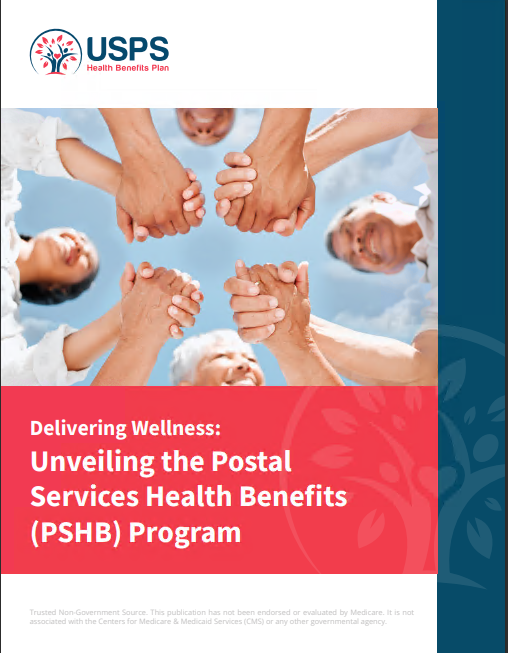Key Takeaways
- Medicare offers varying levels of coverage for eye health, with specific provisions under Parts A, B, C, and D. Understanding these distinctions is crucial for maximizing benefits.
- Routine vision care is typically not covered by Original Medicare but can be accessed through Medicare Advantage plans, which often include additional vision benefits.
Eye Health and Medicare: What’s Covered?
Maintaining good eye health is crucial for overall well-being, especially as we age. Vision care can be essential in detecting serious health issues early, ensuring quality of life, and enabling independence. Medicare, the federal health insurance program primarily for individuals aged 65 and older, provides coverage for various medical needs, but understanding what is covered under eye health can be somewhat complex.
Medicare Part A and Eye Health
Medicare Part A, known as hospital insurance, primarily covers inpatient hospital care, skilled nursing facility care, hospice, and some home health care. While Part A is not typically associated with routine vision care, it does cover certain eye-related medical issues if they require hospitalization.
For instance, if you experience a severe eye injury or a condition that necessitates a hospital stay, Medicare Part A would cover the costs related to the hospitalization. This might include surgery to treat traumatic injuries, severe eye infections, or complications from eye surgeries. However, it is important to note that routine eye exams and corrective lenses are not covered under Part A.
Medicare Part B and Eye Health
Medicare Part B covers outpatient care, preventive services, and certain medical supplies. This part of Medicare provides more extensive coverage related to eye health, particularly for medically necessary procedures and preventive care.
-
Glaucoma Screening: Medicare Part B covers an annual glaucoma test for individuals at high risk, including those with diabetes, a family history of glaucoma, African Americans aged 50 and older, and Hispanic Americans aged 65 and older. The screening includes a dilated eye examination, intraocular pressure measurement, and a visual field test.
-
Diabetic Retinopathy Screening: If you have diabetes, Medicare Part B covers an annual eye exam to check for diabetic retinopathy, a condition caused by damage to the blood vessels in the retina. This screening is vital for preventing vision loss in people with diabetes.
-
Age-Related Macular Degeneration (AMD): Medicare Part B covers certain diagnostic tests and treatments for AMD, a common cause of vision loss among older adults. This may include treatments like injectable drugs administered directly into the eye.
-
Cataract Surgery: If you have cataracts that significantly affect your vision, Medicare Part B covers the cost of cataract surgery, including the implantation of a standard intraocular lens. Following surgery, Medicare also covers one pair of eyeglasses or one set of contact lenses.
-
Prosthetic Eyes: For individuals who have lost an eye due to injury or disease, Medicare Part B covers the cost of an ocular prosthesis, including the initial installation and subsequent replacements or repairs as necessary.
While Medicare Part B provides significant coverage for these medical conditions, routine eye exams and corrective lenses outside of cataract surgery are generally not covered. Beneficiaries must pay 20% of the Medicare-approved amount for these services, and the Part B deductible applies.
Medicare Advantage (Part C) and Eye Health
Medicare Advantage plans, also known as Part C, are offered by private insurance companies approved by Medicare. These plans provide all the benefits of Parts A and B and often include additional benefits, such as routine vision care.
Medicare Advantage plans may cover:
- Routine eye exams
- Eyeglasses and contact lenses
- Discounts on vision correction procedures like LASIK
The specifics of what is covered can vary significantly between plans, so it is essential to review your plan’s details or speak with a licensed insurance agent listed on our website to understand the exact benefits and any associated costs.
Medicare Part D and Eye Health
Medicare Part D provides prescription drug coverage. While Part D does not typically cover vision services directly, it is relevant for managing eye health in terms of prescription medications.
For example, if you have a condition like glaucoma or an eye infection that requires medication, your Medicare Part D plan may cover these prescriptions. However, the coverage details, including copayments and deductibles, can vary based on your specific Part D plan.
Supplemental Coverage (Medigap) and Eye Health
Medigap, or Medicare Supplement Insurance, helps cover some of the costs not covered by Original Medicare, such as copayments, coinsurance, and deductibles. While Medigap plans do not typically offer additional vision benefits, they can reduce your out-of-pocket expenses for covered services under Parts A and B.
For instance, if you need cataract surgery, a Medigap plan might cover the 20% coinsurance you would otherwise need to pay under Part B. However, Medigap does not cover routine vision care or corrective lenses.
Preventive Eye Health Measures
Taking proactive steps to maintain your eye health can help prevent serious issues and manage costs. Here are some preventive measures to consider:
- Regular Eye Exams: Even if Medicare does not cover routine eye exams, it is wise to schedule them regularly. Detecting problems early can prevent more severe and costly conditions.
- Manage Chronic Conditions: Conditions like diabetes and hypertension can significantly affect eye health. Proper management of these conditions can help prevent related eye issues.
- Healthy Lifestyle Choices: A balanced diet rich in vitamins A, C, and E, as well as omega-3 fatty acids, can support eye health. Regular exercise and not smoking also contribute to overall well-being, including vision health.
Next Steps for Eye Health
Understanding what Medicare covers regarding eye health can help you make informed decisions and take advantage of available benefits. While Original Medicare provides substantial coverage for medically necessary eye care, routine vision services are generally not covered. Medicare Advantage plans can offer additional vision benefits, and Medigap can help manage out-of-pocket costs.
Contact Information:
Email: [email protected]
Phone: 7605558901











